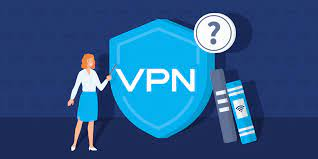Is Using VPN A Wise and Healthy Choice for Today’s Internet Users?

Using Virtual Private Networks (VPNs) has become a popular tactic for people looking to improve their online security and privacy in a time when digital connectivity rules the world. Protecting sensitive data and getting around geo-restrictions are just two advantages of using a virtual private network (VPN), which creates a safe and protected connection between a user’s device and the internet.
Even though there are many benefits to using VPNs, it’s important to weigh these against any potential downsides, like slower connection speeds, and the significance of picking a reliable service provider.
To determine whether or not using this technological tool is a wise and healthy choice for today’s internet users have a look at the in-depth insights below:
Pros of using VPN
Let’s have a look at a few pros of using VPN
-
Enhanced Security
VPNs create a safe passage for data transmission by encrypting your internet connection. This helps shield private data, particularly when utilizing public Wi-Fi networks, from potential hackers and cybercriminals.
-
Getting Around Geo-Restrictions
Users can access content that may be geo-restricted in their area by using VPNs. This is especially helpful for people who are going overseas or who want to access websites or streaming services that are exclusive to a certain region. You can download VPN for Firestick too to access your favorite content.
-
Anonymous Browsing
By hiding your true IP address, VPNs allow you to browse the internet more anonymously. This adds a layer of anonymity by making it harder for someone to link your online activity to you. VPNs create a secure, encrypted tunnel between the user’s device and the VPN server, masking the user’s IP address and encrypting data traffic. This helps in maintaining anonymity and enhancing online privacy.
-
Safe Distance Access
VPNs provide a safe means for remote workers to access business relationships and resources. Keeping data secure and privacy is imperative, particularly when linking to public or unsecured networks. In security contexts, safe distance access emphasizes controlling or monitoring systems, facilities, or sensitive information from a secure distance. This is common in situations where physical proximity might pose risks, such as monitoring critical infrastructure or handling hazardous materials. The goal is to provide flexibility and convenience without compromising safety, whether it’s in the realm of technology, public health, or security.
Drawbacks of VPN Usage
Have a close look at the drawbacks too.
-
Decreased Speed of Connection
A less rapid internet connection may occasionally arise from a VPN because of the encryption and data rerouting via servers. It is possible to notice this speed decrease, especially when using distant VPN servers. Make sure to include clear and concise instructions for every task. Avoid using technical terms and provide explanations for any necessary technical jargon. Visual aids such as images, videos, or diagrams can help users understand complex concepts better. Use them to explain difficult tasks or processes.
-
Liability for Adverse Utilization
VPNs are necessary for security and privacy, but they may also be employed maliciously. Cybercriminals can pose a challenge to law enforcement by using VPNs to hide their identities while engaging in illicit activities. Liability for adverse utilization refers to the responsibility or legal accountability that may be attributed to individuals, organizations, or entities when a product, service, or information they provide is used in a harmful or unintended manner. This concept is particularly relevant in various industries, such as technology, healthcare, and finance. In the financial sector, liability for adverse utilization could involve situations where financial products or services are used for fraudulent activities or result in financial harm to users. The responsible entities may be held liable if they failed to implement sufficient safeguards or if there were misleading representations.
-
VPN Providers’ Credibility
Customers need to pick a reliable VPN service provider carefully. The extreme privacy users want to preserve may be compromised by certain free or barely secure VPNs that log as well as sell user data. Finding and choosing a reliable supplier is essential. reputable VPN provider should have a transparent and comprehensive privacy policy. It should clearly outline what data is collected, how it’s used, and whether any logs are retained. A strict no-logs policy is generally preferred. Look for VPNs that employ strong encryption protocols such as OpenVPN or IKEv2/IPsec. This ensures a secure connection, protecting your data from potential eavesdropping.
-
Difficulty for Users Who Are Not Technical
A VPN can be difficult to set up and configure for users who don’t know much about technology. This could discourage some people from utilizing VPNs, making them vulnerable to dangers online. The absence of intuitive design and accessible documentation adds to the difficulty. Without simplified explanations and step-by-step instructions, non-technical users may struggle to comprehend and utilize the technology effectively. As a result, they may feel alienated or hesitant to explore and engage with digital tools.
The Closure
To ensure a more secure and private online experience, it’s critical to find an equilibrium while employing VPNs responsibly, taking into account both the benefits and drawbacks.











